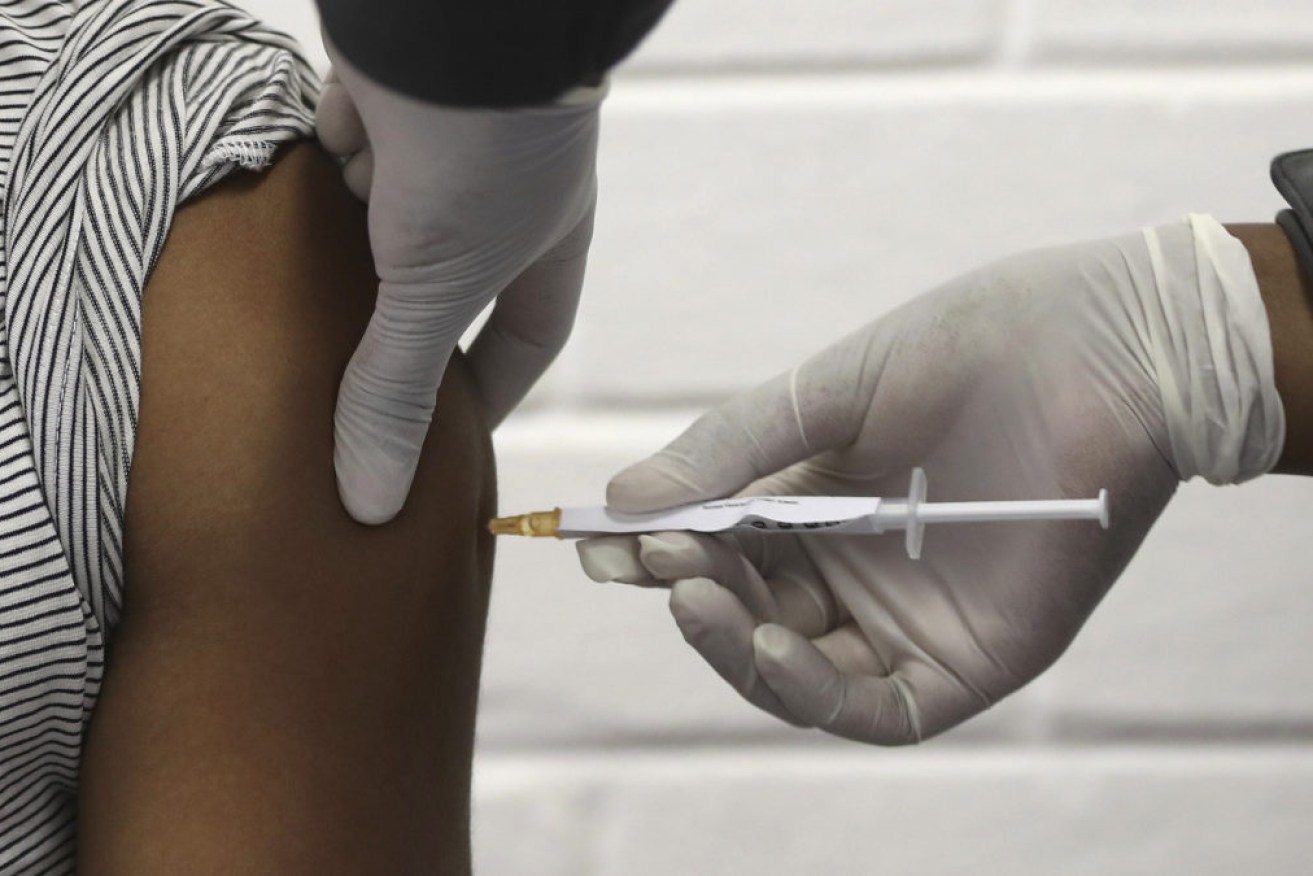Five more clotting cases likely linked to AstraZeneca shot

The man has his AstraZeneca shot seven days ago. Photo: AAP
Australia’s drugs regulator has confirmed five new cases of clotting and low platelets that are likely linked to the AstraZeneca coronavirus vaccine in the past week.
They are:
- 74-year-old man
- 51-year-old woman in Victoria
- 66-year-old man in Queensland
- 64-year-old woman from Western Australia
- 70-year-old man from Tasmania
“You’ll notice that all of those people are over 50, but if you stop back and think about who is now getting the AstraZeneca vaccine, it is only with a few rare exceptions it is only people over 50,” Therapeutics Goods Administration boss John Skerritt said on Thursday.
“It is obvious that future cases will be in the over 50s, and remember the early results globally showed that the prevalence of this rare side effect was much more common this people under 50 but it wasn’t unknown in people over 50.
“We’re not surprised with the results.”
Professor Skerritt provided the update after it emerged on Thursday that two more men were being treated for clots after getting the AstraZeneca shot. They are the Tasmanian man and the Queenslander.
The Queensland man is being treated in intensive care while the Tasmanian is in a stable condition in hospital.
Tasmania’s acting director of public health Scott McKeown is urged Tasmanians to keep getting the vaccine.
“I want to reassure Tasmanians that vaccination remains the best way to protect against severe illness and death from COVID-19 and is a core element of the pandemic response,” Dr McKeown said.
Professor Skerritt said there had been 11 cases of blood-clotting linked to vaccines since Australia’s program began.
“The evidence from TGA and the advice from ATAGI, the advisers to governments, that the benefits of this vaccine for the over 50s still very significantly exceeds the risks,” he said.
Professor Skerritt said the coroner was still looking into the case of 48-year-old NSW woman Genene Norris, who died in April after developing clots thought to have been linked to the AstraZeneca shot.
“They have hearings, they look at medical evidence and then there’s often an inquest so we don’t have an update on any results from a post-mortem from the woman who, sadly, died,” he says.
However, four other people who were hospitalised in Australia in the past couple of weeks with blood clots have already been discharged.
Professor Skerritt said the TGA was also still looking into the adverse affects of the AstraZeneca and Pfizer vaccines in trials and the latest reported instances.
“I just want to go back a step and remind people that for every thousand doses of either the Pfizer or AstraZeneca vaccine administered we receive between six and seven, on average, adverse event reports,” he says.
“These are reports where not necessarily cause and effect from vaccines but these are people who have felt unwell or have presented to a doctor or hospital after being vaccinated.
“Overwhelmingly these reports are of the sorts of things that are associated with any vaccination generally – fever, joint pain, muscle, muscle soreness, tiredness, maybe nausea and vomiting.”

Australia’s latest vaccine snapshot. Image: Federal Health Department
Australia had administered a total of 2,473,529 COVID-19 vaccine doses by Thursday afternoon, including just over 77,000 on Wednesday.
Vaccine operations centre coordinator Commodore Eric Young said distribution of virus shots across Australia would rise more than 150 per cent next week.
“That will be our biggest week of distribution by far, aiming to have more than 850,000 doses of the vaccine distributed across the country,” he said.
“Every single day though our focus continues to be on ensuring that all the vaccines that we have are available across the country when and where required to protect our most vulnerable Australians.”








